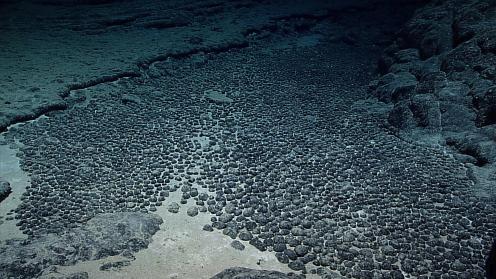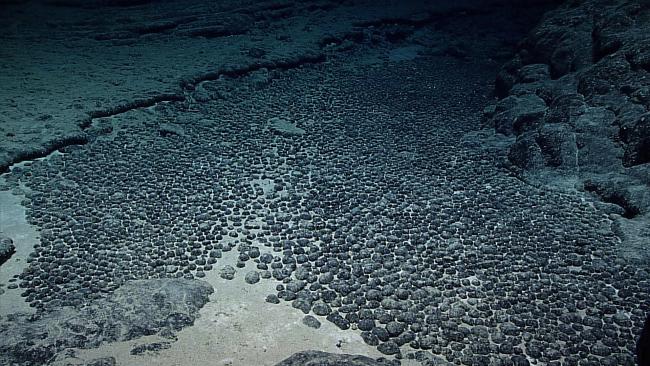About
As environmental concerns continue to grow, the prospect of extracting mineral resources from the deep seabed has generated quite a debate, which permeated the work of the Assembly.
Final report
Summary report 1–4 August 2022
All coverage
Mineral-related activities in the international seabed area have been attracting increasing interest by media, individuals, and other processes on environmental and/or ocean governance. All mineral-related activities are “organized, regulated, and controlled” by the International Seabed Authority (ISA) for “the benefit of mankind as a whole.” The meetings of ISA, which take place in Kingston, Jamaica, where the Authority is based, are thus also attracting increasing international attention.
Extracting mineral resources from the deep ocean floor has long generated a debate. The most common argument in a simplified form in favor of extraction is that these polymetallic nodules will offer, among other things, the manganese, nickel, cobalt, and copper necessary for a better future, including a transition to sustainable energy production. Furthermore, using alternative sources for these important minerals, such as the ocean, could slow down the severe environmental impacts of mining on the Earth’s surface.
Those who are more skeptical point to the consequences for the deep-sea marine ecosystems, emphasizing that an ocean that is already under severe stress, including by plastic pollution and climate change, is ill-equipped to deal with commercial mining activities in the deep sea. They further point towards the limited scientific knowledge for these deep-sea ecosystems, calling for further research prior to any activities that may have detrimental impacts.
The ISA has been trying to balance these concerns through the development of the “Mining Code,” which is the set of rules, regulations, and procedures to regulate prospecting, exploration, and exploitation of minerals in the international seabed area (Area). The Area is defined as “the seabed and ocean floor and the subsoil thereof, beyond the limits of national jurisdiction.”
The Authority has issued:
- Regulations on Prospecting and Exploration for Polymetallic Nodules (adopted in 2000, updated in 2013).
- Regulations on Prospecting and Exploration for Polymetallic Sulphides (adopted in 2010).
- Regulations on Prospecting and Exploration for Cobalt-Rich Ferromanganese Crusts (adopted in 2012).
The exploration regulations include the forms necessary to apply for exploration rights, as well as standard terms of exploration contracts; and are complemented by the ISA’s Legal and Technical Commission’s recommendations for the guidance to contractors on assessing the environmental impacts of exploration.
The ISA is currently focusing on the draft regulations on exploitation of mineral resources in the Area. Discussions are addressing, among other matters, financial models; responsibility and liability; protection and preservation of the marine environment; inspection, compliance and enforcement; and institutional matters.
The 27th session of the ISA was split in two parts. The first part comprised of meetings of the Legal and Technical Commission (LTC) and the Council convened in March 2022. The second part included meetings of the LTC (4-15 July 2022), the Finance Committee (13-15 July), the Council (18-29 July), and the Assembly (1-4 August). A third part, including a Council meeting, is tentatively scheduled for 31 October-11 November 2022.
The ISA Assembly, which comprises all ISA members, is the “supreme organ” of the organization empowered to establish the general policies. All parties to the UN Convention on the Law of the Sea (UNCLOS) are automatically members of the ISA, which comprises 167 states and the European Union.
The Assembly:
- addressed the annual report of the Secretary General;
- received updates on the work of the Council on its work during its 27th session;
- reviewed the implementation of the strategic plan and high-level action plan of the Authority for 2019-2023;
- discussed the report and recommendations of the Finance Committee;
- adopted the ISA budget;
- elected officers; and
- attended to all outstanding matters.
The Earth Negotiations Bulletin covered the session of the Assembly, beginning on 1 August 2022.
View past and future events
Past event
23rd Annual Session of the International Seabed Authority
Past event
1st Part of the 24th Session of the International Seabed Authority
Past event
2nd Part of the 24th Session of the International Seabed Authority
Past event
1st Part of the 25th Annual Session of the International Seabed Authority (ISA)
Past event
2nd Part of the 25th Annual Session of the International Seabed Authority (ISA)
Past event
1st Part of the 26th Annual Session of the International Seabed Authority (ISA)
Past event
27th Session of the Assembly of the International Seabed Authority (ISA-27)
Past event
1st Part of the 28th Annual Session of the International Seabed Authority (ISA)
Past event
2nd Part of the 28th Annual Session of the International Seabed Authority
Past event
3rd Part of the 28th Annual Session of the International Seabed Authority
Past event
1st Part of the 29th Annual Session of the International Seabed Authority
Past event
2nd Part of the 29th Annual Session of the International Seabed Authority
To receive free coverage of global environmental events delivered to your inbox, subscribe to the ENB Update newsletter.

